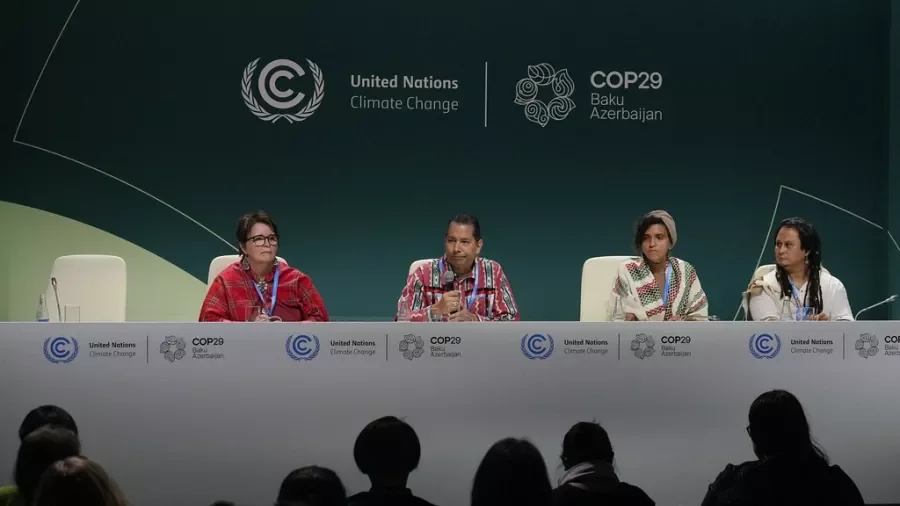
COP29 in Baku: Climate Leaders Like Bill Hare Push for $1 Trillion in Global Finance as Vulnerable Nations Face Rising Climate Costs
Fiona Nanna, ForeMedia News
5 minutes read. Updated 1:17AM GMT Tues, 12th November, 2024
The 29th United Nations Climate Change Conference (COP29), running from November 11 to 22, has convened in Baku, Azerbaijan, bringing together international leaders, scientists, and environmental activists with an urgent mission. As climate change accelerates, the question of adequate climate finance—an estimated $1 trillion per year—looms large. In an era defined by extreme weather events, rising seas, and volatile temperatures, the stakes at this year’s conference could not be higher.
A key focus of COP29 is bridging the yawning gap in climate finance. Despite prior commitments, developed nations have struggled to fulfill the $100 billion annual goal set in 2009 to support poorer countries. Today, experts contend that even that amount is a fraction of what’s needed. According to Bill Hare, CEO of Climate Analytics, “The fate of the planet depends very much on what we’re able to pull off in the next five or ten years in this space [COP29] and nationally. The investment costs, while substantial, are significantly outweighed by the potential economic damages that could arise if we don’t act now.” Hare’s statement underscores the urgency of transformative action—and the trillions required for a sustainable shift.
While discussions focus on the scale of financial aid, real-world crises are testing the resilience of vulnerable countries. In the Global South, countries like Bangladesh, Kenya, and small island nations are experiencing the severe impacts of climate change, from catastrophic flooding to prolonged droughts. These communities need substantial financial backing to implement adaptation strategies, such as building climate-resilient infrastructure and investing in sustainable agriculture.
However, securing funding remains a daunting challenge, particularly amid the economic and political instability seen in donor nations. Political shifts in the United States, Germany, and several EU nations have sparked doubts about sustained financial commitments. Analysts worry that such unpredictability threatens the continuity of climate finance flows, particularly as global priorities fluctuate.
Absences and Uncertain Commitments
The absence of several high-profile leaders and major carbon emitters, such as the United States and China, at this year’s COP29 raises questions about the effectiveness of proposed climate solutions. With fewer influential voices in the room, many are concerned that the commitment to climate finance may fall short. This reality is further compounded by geopolitical tensions, particularly between the U.S. and China, which could hinder cooperation on crucial issues.
A recent report by the United Nations Framework Convention on Climate Change (UNFCCC) has highlighted that global greenhouse gas emissions are not on track to meet the targets set by the Paris Agreement. Without rapid investment in clean energy solutions and adaptation strategies, scientists warn, the world risks exceeding the critical 1.5°C warming threshold, bringing severe and irreversible climate impacts.
Moving Forward Amidst Uncertainty
In the wake of this high-stakes summit, the international community faces a monumental task: translating promises into actions. The climate finance gap underscores a fundamental paradox—the most vulnerable nations, which contribute the least to global emissions, are those hardest hit and least equipped to respond.
Nevertheless, hope persists. Nations, NGOs, and private sectors alike are stepping up, exploring innovative financing mechanisms like green bonds, carbon markets, and blended finance. These initiatives aim to mobilize resources and make climate funding accessible even to the poorest communities. But without multilateral backing and high-level commitment, progress remains incremental.
SEO Focus Keywords:
- COP29 Baku climate finance
- $1 trillion climate finance goal
- Climate finance for developing nations
- COP29 global climate commitment
Meta Description:
COP29 in Baku addresses climate finance challenges with a call for $1 trillion to support vulnerable nations. As global leaders discuss sustainable solutions, the absence of major players like the U.S. and China adds to uncertainties.

